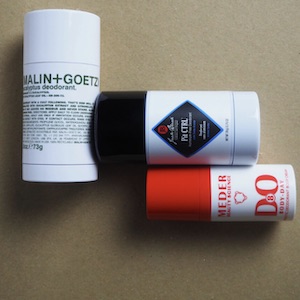[Un]Natural: 3 Artworks We’re Revisiting This Month
By Jo Phillips
A couple of weeks ago, an actor friend subtly sent me a link to the showing of The Plague at the Arcola, with the caption, “let’s go”: I knew we had to cover this. One of my favourite plays at one of London’s most reputable fringe theatres – we had to make a piece of this. So we have. I’ve commandeered this month’s theme ‘Natural’ so we can revisit some [Un]Natural work. Really it didn’t take long to form a coherent article subject to present to my Editor. So, this is our reading/watching list for the rest of the month. Expect a pop-quiz.
 The Plague – Actors left to right:
The Plague – Actors left to right:
Billy Postlethwaite, Burt Caesar and Martin Turner.
While almost everyone whose taken an English Lit class is familiar with Camus’ most famous work – the Outsider – most people are generally unfamiliar with his equally important work: The Plague. During the Nazi occupation of Paris, Camus was a writer for the clandestine newspaper Combat, that functioned as the journalistic arm and voice of the Resistance. It was during this period that a still unknown Camus developed his philosophy of absurdism – man’s intrinsic and eternal quest for inherent meaning in life and his continuing failure to find any. It is, then, of no surprise that in 1947 he published an allegory of the occupation. Set in the large Algerian city of Oran, the story is one of response to catastrophe, and man’s attempt to find meaning and understanding within it. Although all efforts to alleviate the plague come to little or nothing, the story is essentially one of optimism and faith in human nature. Camus seems to suggest that, even though efforts to thwart the plague never come to fruition, the act of attempting to constitutes a noble struggle – one that we can find extrinsic meaning in.
70 years on, the Arcola has rejuvenated the struggle. Multi-award-winning director and Olivier-award nominee Neil Bartlett retells the classic for our own unsure times. A frank and gripping new adaptation, Bartlett stages pure chaos and humanities actions to deal with it.
The play runs from April 5th and finishes May 6th – get tickets here.
If you enjoy the play, look out for No Exit or Les Mouches by John-Paul Sartre.
David Lynch is possibly the most reputable name in American experimental film making. He’s been called the most important director of his era and the Renaissance man of Modern American filmmaking. One of the most exciting names in American fiction, the late David Foster Wallace writes of the conscious and subconscious influence of Lynch. The term ‘Lynchian’ itself, has slid into pop-culture just as ‘Orwellian’ or ‘Kafkaesque’ did before. His films focus on the horror and turmoil lurking within-and-under the pores of society.
The Elephant Man is based on the real-life of John Merrick (1862 – 1890) – Britain’s most deformed man. Set in Victorian England, Sir Frederick Treves (Anthony Hopkins) rescues Merrick from a circus freak show, where he is assumed to be retarded. The piece can be aptly named a tragedy of humanity, both in the sense of the vile injustice done onto Merrick, and the following moral dilemma concerning the morality of freeing Merrick into the same society which so cruelly demonized him. Few films can arise the mechanism of sympathy with such high completion rate, while maintaining such artistic character.
John Hurt receives an Oscar for Best Actor for his role as Merrick, while the film receives seven nominations including Best Picture and Best Film. If you want to catch The Elephant Man on screen, Close-Up Film Centre are showing it on April 21st as part of their David Lynch season.
If you enjoy the film, also check out Blue Velvet and Mulholland Drive.
The name Franz Kafka now resonates as one of the domineering pillars of twentieth-century literature, however, as an individual, Kafka’s life was filled with disaster, anxiety, distress and, at times, chronic suicidality. His father was an ambitious and bullying shopkeeper who asserted a gravitational hold over him almost until the end of Kafka’s life. His sensitive and shameful disposition resonates through his work, his miserable romantic life amply illustrated through what may be the most heart-breaking collection of love letters in the history of the human heart. He eventually came to death after contracting TB. Unable to eat, he starved to death, but not before he implored his friend Max Brody to destroy his writings. Thankfully Brody defied his last will. Kafka, like Camus, falls under the family resemblance of Existentialism and had a similar attract to absurdity.
Metamorphosis is the tale of Gregor Samsa, a travelling salesman. The opening line is one of the most repeated in literature and summarizes the plot starting point: “As Gregor Samsa awoke one morning from uneasy dreams, he found himself transformed in his bed into a monstrous vermin”. Alienation, we can say, is the central theme here; the optimism and hope for humanity of the prior two artworks almost completely amiss.
If you enjoy the story, check out the 1977 film version: The Metamorphosis Of Mr Samsa. Further recommended reading in Kafka: The Trial and The Castle.
Sara Powell on stage at The Plague
All images courtesy of Alex Brenner.








